5. Star Trek: First Contact (1996)
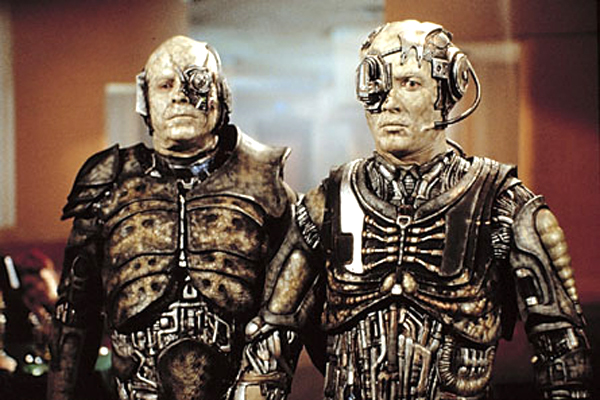
After a prosperous television run from the late 80’s to the mid-90’s, The Star Trek: Next Generations cast fully took over on the big screen with First Contact.
With William Shatner’s final performance as James T. Kirk coming in Star Trek: Generations, the spinoff series gained full control of the Enterprise. And it’s safe to say it did so honorably.
Jean-Luc Picard (Patrick Stewart) and his crew would never again compare to the original crew the way they did in this film, but it was fun while it lasted. First Contact was directed in a powerful manner by Jonathan Frakes. He brought not only poise that showed in the finished product, but also starred in the movie as Commander Riker.
While Stewart showed he was fully capable of being front-and-center in the captain’s chair, Brent Spiner’s Data progressed as a fan-favorite for Next Generation newcomers. The ability to balance the needs of long-term die-hards and the mainstream audience was the biggest attribute for First Contact. Handling the characters right was one thing, but the way they incorporated the science was another.
While one of the more exhilarating Trek movies, the film managed to stay factually scientific, staying true to its genre. Much would change from the original series, but First Contact respected its predecessor while setting off on its own.
Compared to the film before it, First Contact was given a jolt through its smart script and action. Those were two aspects that often seemed campy in the films before it. They had some great effects for that time to be thankful for as well, ones that hold up in many instances to the ones today.
Trek would never be the same until J.J. Abrams took over in the late 2000’s. With that said, First Contact gave the Next Generations crew the film it merited after a long-lasting run on the small screen.
4. Fantastic Beasts and Where to Find Them (2016)
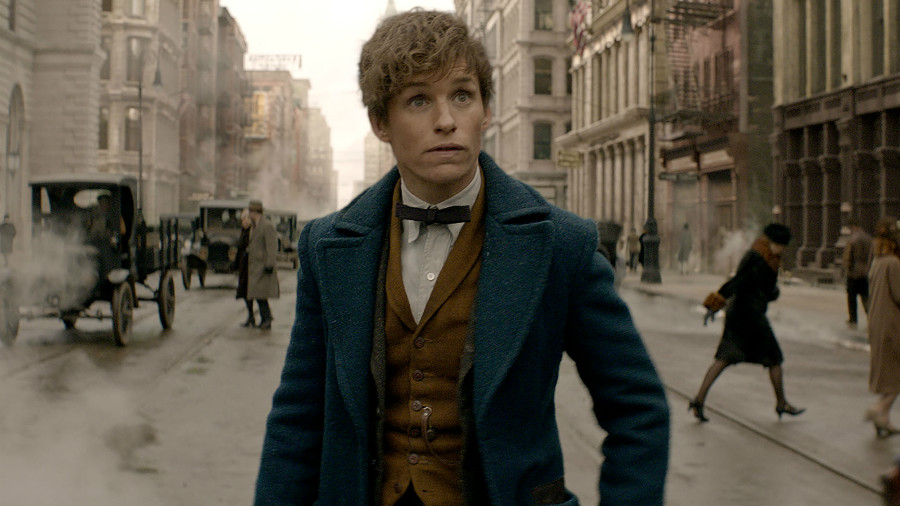
There may only be one franchise in existence that causes more nostalgia than Harry Potter. And that franchise with lightsabers already made a recent movie aimed strictly on nostalgia.
But Fantastic Beasts and Where to Find Them set itself apart from Potter, aside from a few noticeable spells and a mentioning of muggles, Dumbledore, and Hogwarts. It’s so surprisingly independent that it barely seems in the same cinematic universe.
It does keep a similar tone to director David Yates’s later Potter films, even with a completely new setting in New York City. NYC isn’t Hogwarts or Hogsmeade by any means, but serves the story well with beasts of all sizes on the loose.
Newt Scamander (Eddie Redmayne) is the charismatic figure everyone hoped he would be, and the rest of the cast has their own defining characteristics. They make the journey twice as enjoyable, most notably because of Dan Fogler’s Jacob Kowalski.
As lovable as he is comical, Kowalski the muggle makes this movie. Besides having a heart of gold, the way they implement him in the movie is ingenious. Learning about these beasts and a new world through his eyes gives the exposition from Scamander and the others authenticity. He’s essentially the representation of the audience on-screen. But the key is that he stays integral and useful to the plot throughout, as does the rest of this group.
There are some interesting new places introduced in Fantastic Beasts, most notably the suitcase Scamander drags around. Calling back memories of Platform 9 ¾ and Hermione’s endless bag in Deathly Hallows Pt. 1, the suit case expands on the inside to house many different creatures and environments. It also serves as kind of a room of requirement, a safe space for beasts and humans alike.
The actual narrative of Beasts is a little thin in areas, with the storylines taking a while to link together. The first-half of the movie is pretty much a 1920’s version of Pokemon Go with actual stakes.
But Beasts has a couple surprises up its sleeve, not only serving as a franchise kick-start, but as a singular episode worth relishing.
3. Creed (2015)
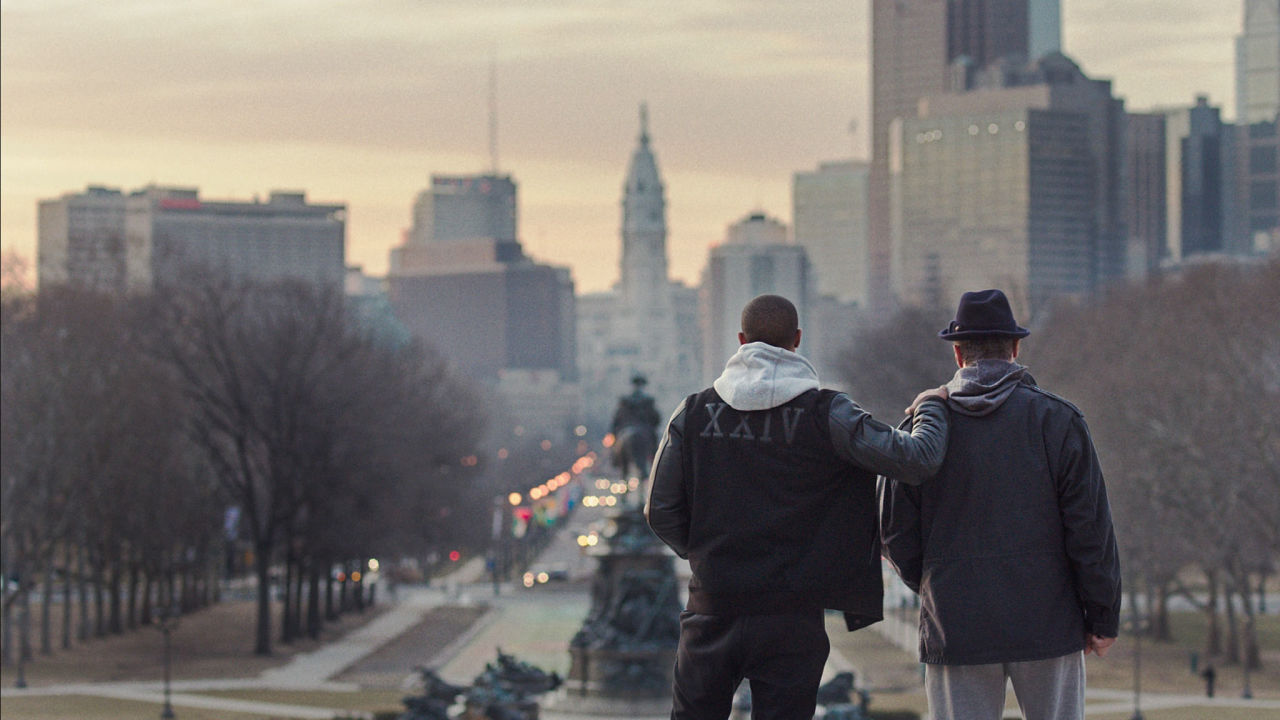
The Rocky franchise looked dead in the water after 1990’s Rocky V, floating further and further into obscurity over the years. But after 2006’s Rocky Balboa took the franchise off the canvas, it still needed a new vision moving forward.
With star Sylvester Stallone well past his prime, they turned to budding star Michael B. Jordan. The chemistry between the two revitalized the franchise and gave Stallone perhaps his most well-rounded performance. He wasn’t just the old trainer giving words of wisdom, as he had a nice continuation to his arc with his own struggles.
Meanwhile, Jordan gave his own signature act, a great bounce-back from the infamous Fantastic Four reboot earlier in the year. He supplied new life to these movies with his fiery role as Adonis Creed. Between his capable acting chops and athletic capabilities, he fits perfectly into this movie. Though Southpaw did a better job of depicting boxing sequences that same year, Creed still looks convincing because of Jordan.
Overall as a film, it hit points of nostalgia while shifting the franchise toward the future. For every old trait it pulls out, such as the training montages and the story of a boxer on the figurative ropes, it brought something new to the table too.
In boxing terms, it’s a fluid film that lands plenty of punches. Never wavering into boredom or complacency, it’s a film that still maintains its heart-of-a-lion status.
2. Deadpool (2016)
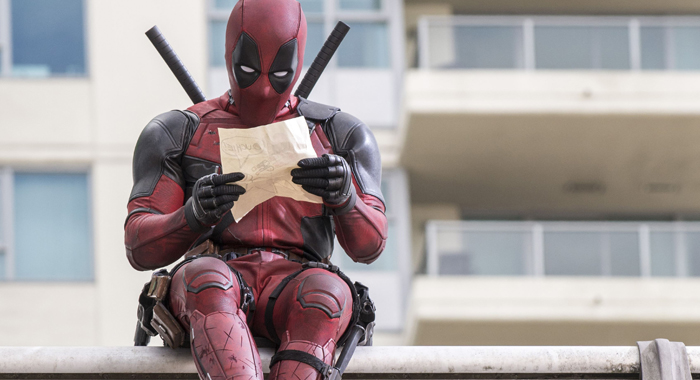
One of the more unique comic book characters in history, Deadpool was ruined at the end of X-Men: Origins. The Merc with a Mouth had his lips sewn up in the final act, thereby taking away one of his most appealing qualities.
After fans clamored and actor Ryan Reynolds pushed hard for a Deadpool film, they finally were given their wish. And even with an inexperienced director and a low-budget production, Deadpool was done justice, and made into the highest-earning R-rated movie in history for good measure.
Deadpool fit in impressive action sequences, vulgar comedy, and roughly dark moments all into one movie and make it stick. Reynolds was born for the role with his constant witticisms and looks to pass as a superhero.
For $58M, the effects were well-configured, done for a price-tag that was a quarter of some other Marvel movies and made more than many of them. It made such money with a valuable lead, a shady tone juxtaposed with sly jokes, and the suitable amusement attached with brutal violence.
There weren’t a ton of faceless armies to fight or a typical call to duty, as this film defied several superhero conventions. The only problem to be had is that it made fun of too many of those clichés, only to still fall into a few of them. It added to a long string of forgettable villains, and was equipped with a ho-hum ending.
But having such a kickass character, a unique swagger, and new essentials to bring into the genre, Deadpool took the predictable ways of the superhero and, for the most part, flipped it on its head.
1. A Shot in the Dark (1964)
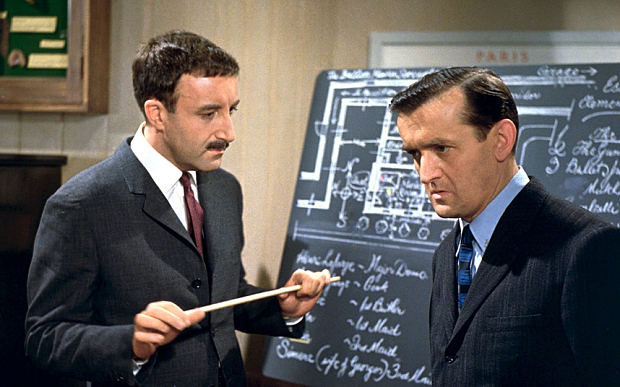
The original Pink Panther is a cherished classic that no ridiculous remake could ever diminish.
The 1963 film introduced a wonderful set of characters, most notably that of Inspector Jacques Clouseau. He was merely part of an ensemble performance, but Clouseau was such a favorite that he received his own movie the very next year.
A Shot in the Dark is the epitome, and at the pinnacle, of slapstick humor. There’s no reason not to have it right along the same lines as Airplane!, Young Frankenstein, and Monty Python.
Clouseau’s goofy antics carry a film that often goes in strange directions. But it seems so natural, because the character is naturally inclined to get himself in different bits of distress and stumble at random. The foolery never tires because of Sellers’s pure comedic talents, much of it done through action.
There’s great timing in both physical and verbal humor, to an extent that it couldn’t be duplicated in any of the follow-ups. Sellers’s Clouseau is quick-witted to perfection one minute, then falling over himself and others the next.
It’s simply a well-rounded, never-ceasing slapstick from a series that knew how to do the sub-genre so, so well.